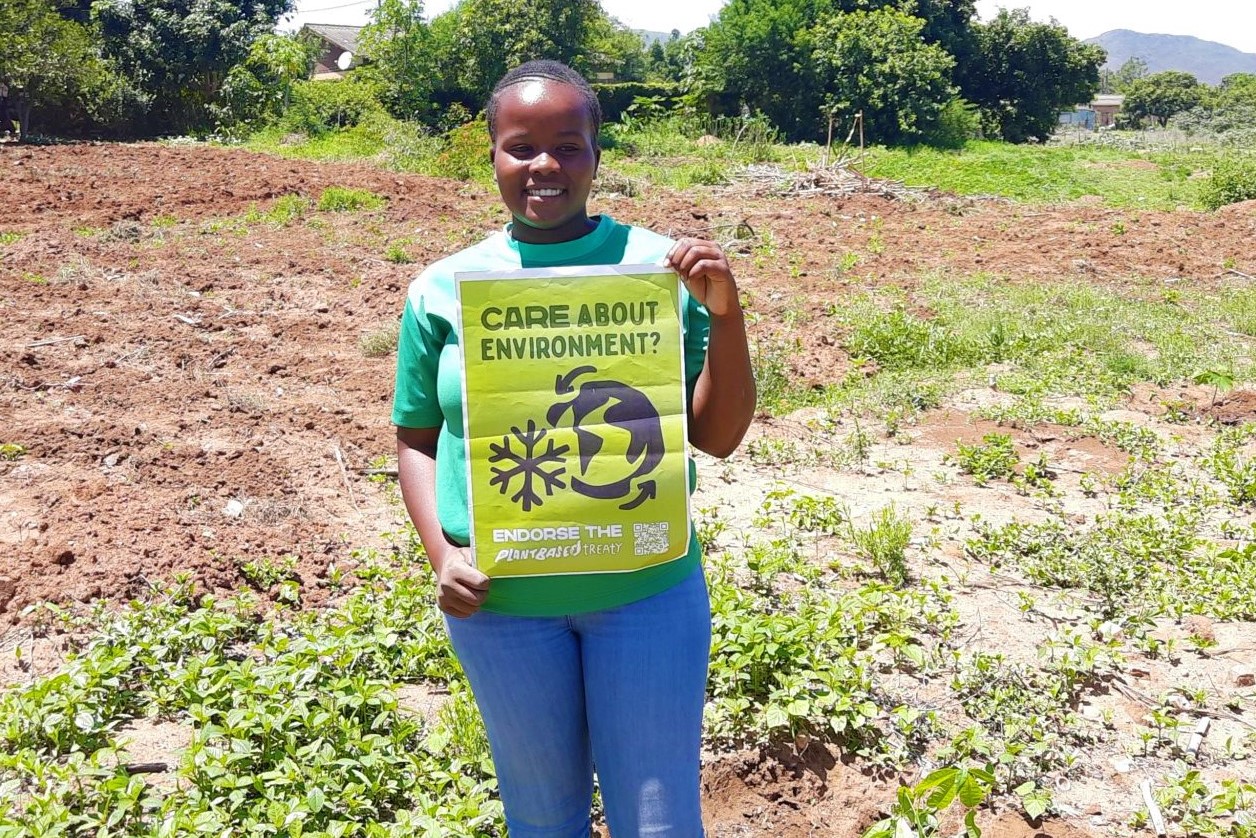
Manica Youth Assembly Trust (MAYA) aided by its volunteers and local community members this week planted 100 trees in Devonshire along Sakubva River in Mutare Zimbabwe, as part of National Tree Planting Day commemorations. The first Saturday of December every year marks National Tree Planting Day, organized by the Forestry Commission to “motivate the nation to plant and conserve trees, educate the nation on the importance of forests, enhance biodiversity…” in order to mitigate the impact of climate change.

It is through this purview that MAYA has been consistently organizing tree planting initiatives in Mutare and throughout the province in support of this long standing national initiative. Although the rainy season is the best tree planting season, MAYA has taken a deliberate decision to plant trees throughout the year in an effort to inculcate a culture among citizens of planting trees.
Zimbabwe has been experiencing the negative effects of climate change through shifting seasons and rainfall patterns, recurrent droughts and floods in recent years. These have caused major socio economic and food security challenges within vulnerable communities especially rural communities who depend on farming for their survival. Rural communities also utilize trees for firewood for cooking, brick molding, thatching homes, activities which increase the rate of soil erosion and soil degradation.
The site was strategically chosen for maximum impact because the area is densely populated and since the area is adjacent to Sakubva river which has been breaking its banks every year during the rainy season causing massive erosion and threatening the nearly houses, decision was made to plant trees along the river bank inorder to arrest the erosion and to increase the survival chances of the trees since they will not require watering since they are on the river bank.
The commemorations were attended by local stakeholders who included community influencers such as church leaders, youth leaders, civic society members, MAYA volunteers and dozens of local people who received key messages on the importance of reforestation. Awareness raising especially on the effects of climate change on communities was also done with various speakers who shared their invaluable knowledge and information with participants such as the technical know-how on nursery establishment, seed production, and preparation for tree planting.
Trees are a renewable resource only when humanity replaces what it consumes. With the increased demand and pressure on energy needs in the country due to failure by the National power utility, Zimbabwe Electricity Supply Authority (ZESA), trees are under renewed onslaught by residents who have no other source of alternative energy for domestic use and timber for construction purposes. This means that trees have become a high value product. It is a vicious cycle which has to come to an end .There is no doubt that tree planting remains a primary and sustainable exercise to replenish the depleted forests and biodiversity which easily be done at family or individual level and at zero cost but with huge potential to save humanity and the climate.
The tree planting drive works as a rallying point on afforestation where the whole country focuses on planting that particular species among others. It helps to ensure that our indigenous species do not become extinct. While we value exotic trees for their various economic contributions, our indigenous species remain important as they save a greater cultural, religious and economic value and also define a country and a culture. They are an important warning system and the community pharmacy. It is indigenous forests that support biodiversity. Indigenous trees are slow growing and are very difficult to replace when they have been cut down so there is always need to intensify efforts in the replanting of indigenous trees which explains why this 2022 national tree planting season, the mukute/muhute tree was chosen as the primary tree to be planted.
